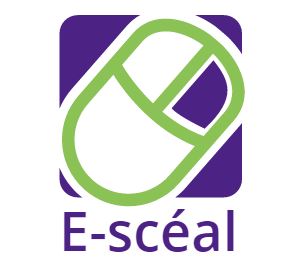6th February 2007 - Cheaper holidays and full school attendance not mutually exclusive.
Cheaper holidays and full school attendance not mutually exclusive.
For families with school going children, where the choice of timing of a holiday is limited by the standardised closing of Irish schools, there can be a great temptation to make significant savings by choosing to go outside the school holidays. This has led to some children missing out on school time.
Is there a way in which, nationally, there could be greater flexibility in schools choosing the timing of their breaks while still maintaining co-ordination at local level? IPPN (The Irish Primary Principals Network) thinks there is.
"Schools and teachers - as much as parents - appreciate the need for co-ordination of school closings and holidays. As principals, we are very concerned that all children should attend school fully. There is no argument about this." said Tomas O Slatara, President of IPPN. "However, the main need for co-ordinating school closures is at a local or regional level, not a national one."
In other European countries, where there is pressure on ski resorts and holiday destinations, they have adopted a staggered approach to school closings on a regional basis. Germany has ten regions where the closings are co-ordinated on a regional basis but staggered nationally. France has three zones. Denmark allows flexibility within a certain number of minimum days a school operates with municipalities deciding at a local level. Italy has eleven regions where closings are co-ordinated but staggered nationally. "These countries have had to come up with a sensible arrangement to cope with this issue.
If, as it appears, some children are missing out on school time because of pressure to avail of cheaper holidays, then we should look at a regional or local arrangement which would maintain co-ordination for practical purposes at a local level but which would stagger breaks nationally.The travel and holiday industry is no different to any other in the way that supply and demand works. Greater demand allied to lower supply means higher prices. If everyone is looking to go away at the same time, then availability will be restricted and prices will be higher" said Seán Cottrell, IPPN National Director
"The move in recent years to standardise school holidays arose out of a number of factors. Many parents were frustrated where they had children attending a number of different schools in the same locality and where these schools closed at different times for breaks and holidays. When schools did not all close at the same time, some families had to make arrangements for childminding and transport over a protracted period. One child in primary on break this week and another on break next week meant two weeks of special arrangements instead of just one. Co-ordinating school transport and other services was another reason for making all schools close at the same times."
The IPPN proposal can allow for the flexibility of arrangements to meet these different needs while still maintaining the integrity of the school year.
20th February 2007 - IPPN Statement on Teacher initial education, induction and probation
Teacher initial education, induction and probation
If the findings of the DES report on the quality of teaching practice in a sample of final year students are accurate and reflective of the overall picture, then we would expect that up to one in three newly qualified teachers in their first year of probation would "fail" their probation. How many teachers in 2004, 05, 06 have not been probated? In this first year, significant support and expertise by principals and senior teachers goes to helping new teachers hone their craft. Principals put significant time and resources into helping newly qualified teachers. In 7 out of 10 cases, this is an additional responsibility on top of a full class teaching day.
Principals are concerned at the timing of this report in the context of other moves. It would appear that there is a steady and persistent move towards shifting the responsibility for induction and probation away from the DES and the Inspectorate and on to BOM's and Principals. This was traditionally an area of responsibility and competency for Inspectors. Now apparent that schools - and this means principals - expected to shoulder more and more responsibility in this matter.
It looks like the pilot programme on teacher induction might be extended fully. This is a very intensive and formalised programme of what is informal good practice by principals. It could be considered as replacing the proposed 4th year of the initial B.Ed. course. This is yet another responsibility being handed on to schools without any corresponding recognition of additional resources needed to do so. 7 out of 10 principals also teach a full class day. How can they be expected to take on formal teacher induction and probation matters as well?
ends
27th March 2007 - 5,000 primary school children to lose access to psychological service.
Press Statement
IPPN
27th March 2007
5,000 primary school children to lose access to psychological service.
The National Education Psychological Service (NEPS) has informed some 29 Dublin schools, at short notice and without explanation, that they are to be removed from their service. 5348 children are instead to be dealt with by a commissioning service - the Scheme for Commissioning Psychological Assessments. This is part of a "reordering" of school coverage in Co. Dublin and Co. Wicklow.
Despite commitments to expanding the NEPS service, over 5,000 children in these schools have now suffered a removal of existing service.
NEPS provide a psychological service to schools and, in addition to doing initial assessments for children with learning and behavioural difficulties, also provides an ongoing advice and support service for schools. The commissioning service instead provides funding for schools to get private assessments done. However, this does not deal with ongoing help, advice or support for children or schools. The funding allowed is, in some cases, not sufficient to pay for an assessment. Many school principals have found that psychologists are reluctant to undertake work under the terms of this commissioning scheme.
"It can be difficult to get a private appointment for a child to be assessed. Many of the psychologists on the approved list are booked up for months and years." said one principal.
Sean Cottrell, Director of IPPN (the Irish Primary Principals Network) said:
"It is astonishing to think that with all the attention being paid to the special education needs of children in our schools and an ongoing commitment to expanding the NEPS service, that over 5,000 children in these schools have had this service withdrawn. Instead of getting an increased and enhanced service, these children are being put back to the bottom of the list. School principals had an expectation that service would improve and increase - not be taken away. Switching services around from one school to another cannot be portrayed as an expansion - this is simply optics, like the Puffer Fish, who inflates itself to appear much larger than it really is so as to deter attackers. Schools, principals, teachers and children have nothing but praise for the NEPS service. The only criticism is that they want more service, not less. Going from a situation where you are included in the service and then to have it taken away seems cruel and unusual for these children and their families."
Ends





















































